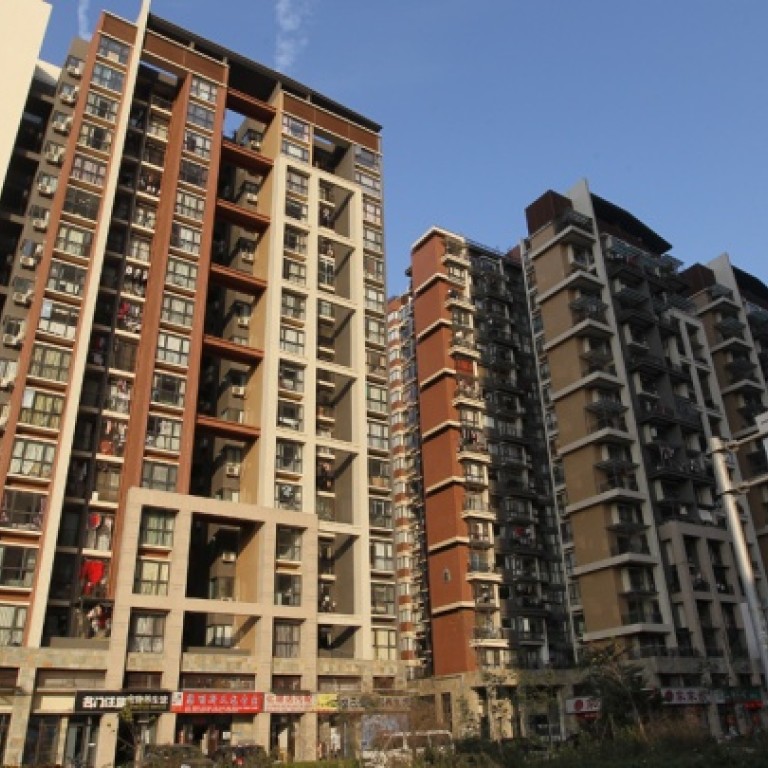
Capital gains tax on second-home transactions hits property prices
Home values climb more slowly in Aprilas Beijing's cooling measures take effect
Property prices grew more slowly on the mainland last month compared to March following the latest round of cooling measures introduced by the government.
Research by the National Bureau of Statistics showed prices rose in 67 of the 70 major mainland cities it regularly monitors. Two recorded lower prices, while prices in the other city were flat.
On average, prices rose 0.61 per cent, against 0.65 per cent in March. But on a year-on-year basis, average new-home prices rose 4.9 per cent in April, according to a Reuters calculation based on bureau data - higher than the year-on-year increase of 3.6 per cent recorded in March.
"The poor performance of the market in April was due to the local governments releasing the details of the cooling measures for the property market," said Li Wenjie, general manager at property agency Centaline (China). "I think more mainland cities will record a fall in property prices this month."
The four first-tier cities all saw prices climb more slowly. The average price of a new home in Beijing climbed 1.8 per cent, against 2.7 per cent in March. In Shanghai, prices rose 2 per cent against 3.2 per cent in March, while the figures for Guangzhou and Shenzhen were 2.1 and 1.8 per cent, respectively.
The resale market fared no better. In Shenzhen, prices rose an average of 0.8 per cent compared with 2.3 per cent in March. Beijing's resale market posted the strongest figures of the first-tier cities, at 2.1 per cent, still down on March's 3.1 per cent.
Alan Chiang Sheung-lai, head of residential property at DTZ Greater China, said: "The introduction of the 20 per cent capital gains tax on second-home transactions led people to rush to buy property in March before the policy took effect [in April]."
He said the tax pushed up homes sales and prices sharply in March. "But at the same time, the property market turned quiet in April after the bounce in March. Home transactions in major cities dropped sharply and property prices turned flat," he added.
In the new-home market, developers did not raise the asking prices of their projects as they feared it would keep potential homebuyers away.
"There will be plenty of new housing in the coming years. Some potential homebuyers worry the increase in supply would lead to a fall in property price. They have adopted a wait-and-see attitude towards buying flats," Chiang said.
Li said second- and third-tier cities faced serious oversupply, causing a sharper drop in prices.

